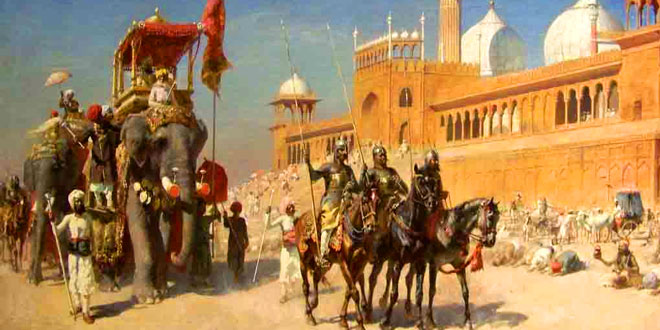Question: Name the events for which specific dates can be determined.
Answer: The year a king was crowned, the year he married, the year he had a child, the year he fought a particular battle, the year he died, etc.
Question: What was an important aspect of the histories written by the British historians in India?
Answer: The rule of each Governor-General was an important aspect.
Question: Who was James Mill?
Answer: He was a Scottish economist and political philosopher and is known for his book “A History of British India”.
Question: What was Mill’s opinion about the Asian societies?
Answer: In Mill’s opinion all Asian societies were at a lower level of civilisation than Europe.
Question: What evil practices, according to James Mill, dominated the Indian social life before the British came to India?
Answer: According to James Mill, the evil practices that dominated to the Indian social life were religious intolerance, caste taboos and superstitious practices.
Question: How did paintings project Governor-General?
Answer: Paintings projected Governor-Generals as powerful figures.
Question: Why do many historians refer to modem period as colonial?
Answer: It is because, under British rule people did not have equality, freedom or liberty — the symbols of modernity.
Question: Mention one important source used by historians in writing about the last 230 years of Indian history.
Answer: The official records of the British administration.
Question: What is done under census?
Answer: It records the number of people living all the provinces of India and gathers information on castes, religions and occupation.
Question: What do official records not tell?
Answer: Official records do not tell what other people in the country felt, and what lay behind their actions.
Question: Why do we try and divide history into different periods?
Answer: We do so in order to capture the characteristics of a time, its central features as they appear to us.
 Class Notes NCERT Solutions for CBSE Students
Class Notes NCERT Solutions for CBSE Students



It’s very much interested